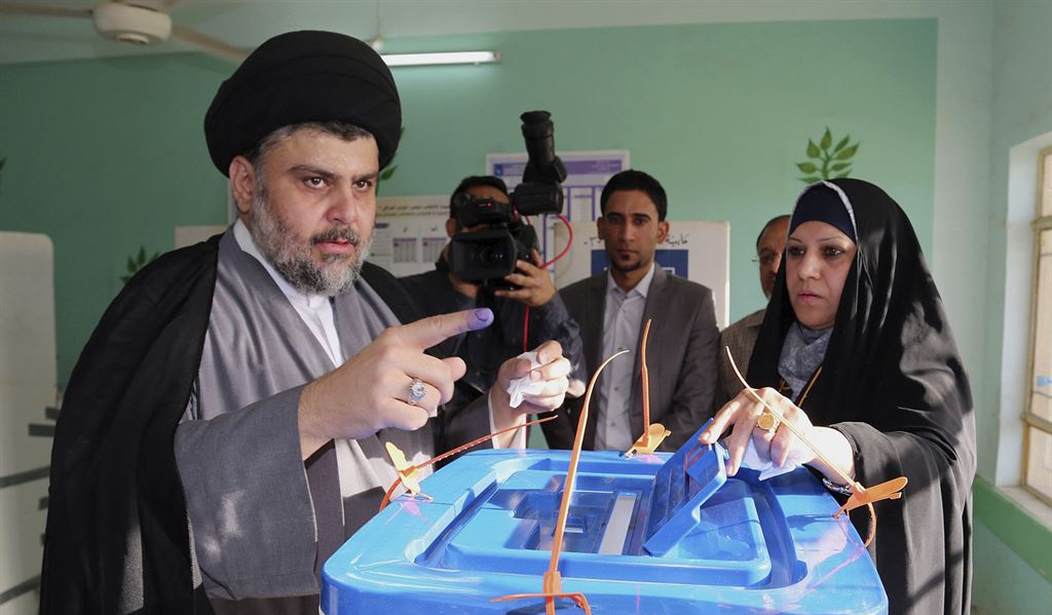With all of the various crises currently embroiling the world, it was probably easy to overlook a rather sad anniversary that took place this month. It’s been slightly more than 20 years since the United States government invaded Iraq, supposedly with the purpose of rooting out and eliminating weapons of mass destruction that threatened to trigger the end of the world. We overthrew the government of Saddam Hussein in a matter of weeks, sending the definitively evil dictator into hiding. And in true neoconservative fashion, America promised to replace tyranny with democracy, oppression with freedom, corruption with free-market capitalism, and all of the other hallmarks of a new shining city on the hill in the middle of a desert. We all saw how that worked out. This week, Foreign Affairs published a lengthy, depressing summary of the twenty years that followed, titled, “Why Iraqi Democracy Never Stood a Chance.” It serves as a reminder that the flower of democracy doesn’t easily take root in every type of soil.
Twenty years ago this month, the United States and a handful of allies invaded Iraq, promising to unseat the dictatorial regime of Saddam Hussein and build a new, flourishing democracy. They succeeded in quickly bringing down Saddam, but conjuring a democratic Iraq proved to be much more difficult. Instead, what emerged after 2003 was a political system grounded in corruption, self-dealing, and brutal oppression at times reminiscent of the violence of the previous regime.
On paper, Iraq in the last 20 years has looked like democracy, staging five national elections and seeing five largely peaceful handovers of power between different political parties and prime ministers. But the government has failed at a more fundamental level. It has been unable to provide basic services to citizens, instead enshrining a system of corruption that benefits a small elite who have prospered no matter who is the prime minister.
The invasion took place several years before Hot Air was born in its current incarnation. I was writing at various other sites at the time, but it may surprise some of you to know that I was opposed to the invasion of Iraq from the moment the possibility was suggested. I was actually one of those annoying people who went out in the streets carrying signs calling for George W. Bush to back the hell down off of the ledge. I had supported the war in Afghanistan fully because we still hadn’t finished recovering all of the bodies from the attack on the World Trade Center and something needed to be done. But the storyline regarding what was happening in Iraq never made any sense.
There was a good reason for that. It was only later that we learned that all of the intelligence Washington was relying on about nuclear fuel refinement and mobile bioweapons labs in recreational vehicles was being fed to us by Ahmed Chalabi and the Iraqi National Congress through an intelligence source going by the name of “curveball” or “Pulsar One.” (Who most likely was Chalabi himself.)
And the information was all nonsense. Saddam had a pile of yellowcake uranium that the IAEA had known about for years, but he’d never figured out how to do anything with it. The only WMDs we ever found were some ancient, leaking nerve gas devices that we had given Iraq during its previous war with Iran. The only thing Chalabi ever wanted was to overthrow Saddam Hussein and rule the country himself. He didn’t have the muscle to do that on his own so he convinced America to do it for him. (Chalabi died in 2015 without ever realizing his ultimate dream.)
But as Foreign Affairs points out, that history lesson was only the beginning of the many things that went wrong. Summoning up a true democracy from the ruins of a tyrannical autocracy wasn’t just a daunting task. It proved to be impossible. We were able to set up all of the trappings of democracy on the surface and a number of elections have taken place since then. But under the covers, Saddam Hussein was never the root of Iraq’s decrepit nature. He was just a symptom. The entire culture in that nation was built on a foundation of corruption and greed, floating above the surface of an endless battle for control between the Sunni and the Shia. And the elite from both groups kept up the graft and corruption, fleecing the people for every last cent that could be squeezed out of them no matter which party nominally controlled the government. And as the linked report points out, the image of a democratically elected government in Iraq is largely an illusion. They have issued false reports about the turnout in recent elections, but even those reports showed that participation had fallen to barely 40 percent. The real number is believed to be closer to 20.
And now, twenty years later, Iraq has entered into an all-but-official partnership with Iran. The deal supposedly only covers “border security,” but Iran’s influence in the country has been growing steadily. In terms of being any sort of free and open democratic system, Iraq is essentially a failed state that will not support the goals of the west. The invasion and subsequent occupation of Iraq turned out to be one of the greatest foreign policy failures in America’s history. Let’s just hope that we’ve learned something from the experience.









Join the conversation as a VIP Member